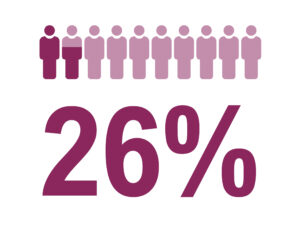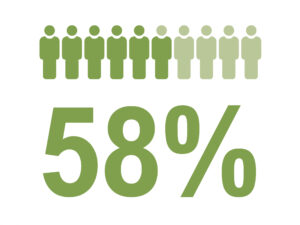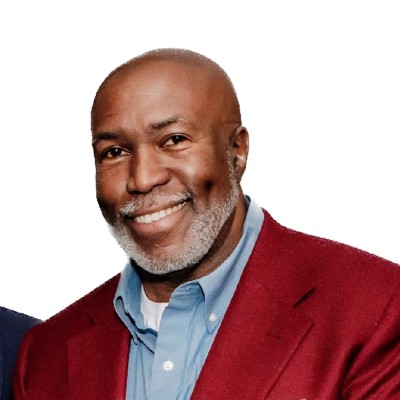
Report that they have participated in a clinical trial
Responses: N=1,193
Many pharmaceutical companies are investing in health equity strategies to reach untapped patient populations with innovations that can lead to better patient health and wellness and new business opportunities. However, the US has never seen or experienced a time in which everyone has a fair and just opportunity to attain their highest level of health. Black communities are uncertain about what health equity means.
Targeted and culturally informed public awareness campaigns that leverage community influencers are essential components of health equity strategies to educate people about topics which are new to them and encourage them to participate in health seeking behavior.

Report that they do not know or are unsure about what health equity means
Responses: N=1,213
Blacks are underrepresented in clinical trials. Many studies have identified mistrust and distrust as “a” – or in many cases “the” – primary barrier to Blacks not participating in clinical trials. While trust carries heavy weight as to whether people participate in clinical trials or not, the question of trust assumes that someone asked Blacks to participate – insights suggest that the invitation was not extended – Why? Studies show that racial bias in clinical trial participation is one of the underlying factors preventing diversity in clinical research.
Decentralized clinical trials (DCTs) – where activities occur at locations other than traditional clinical trial sites (e.g., participants home, local clinics) – can promote diversity, enhance patient access, improve retention rates, real-time data collection, cost-effectiveness, increased data quality, faster recruitment, and resilience to external factors.

Report that they have participated in a clinical trial
Responses: N=1,193

Report that they have never been asked to participate in a clinical trial
Responses: N=1,649

Report that they don’t know anyone who has participated in a clinical trial
Responses: N=1,649

“Health equity and its drivers, the social determinates of health, aren’t new conversations – old news that needs action and relentless, bold leadership. We’ve known for decades, if not centuries, that Black and Brown communities are sicker and die younger because of the systemic barriers to good health. Our communities don’t even know what the health equity conversation is about because we’ve never seen or witnessed health equity in the diseases that disproportionately affect us.” – Reginald Ware – CEO, BlackDoctors.org